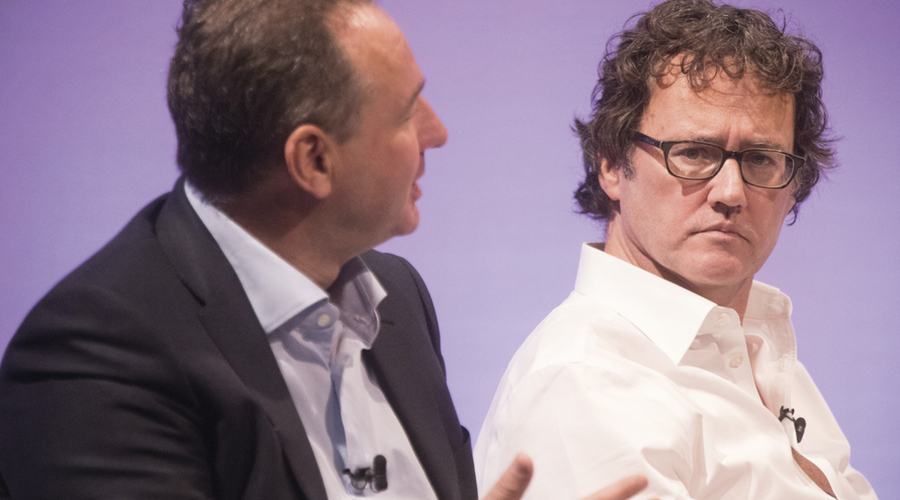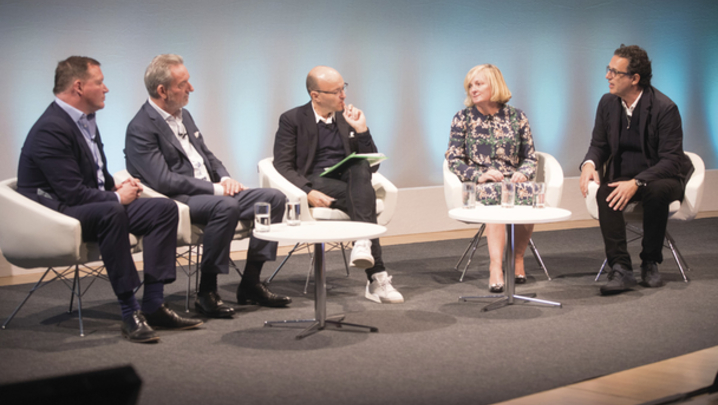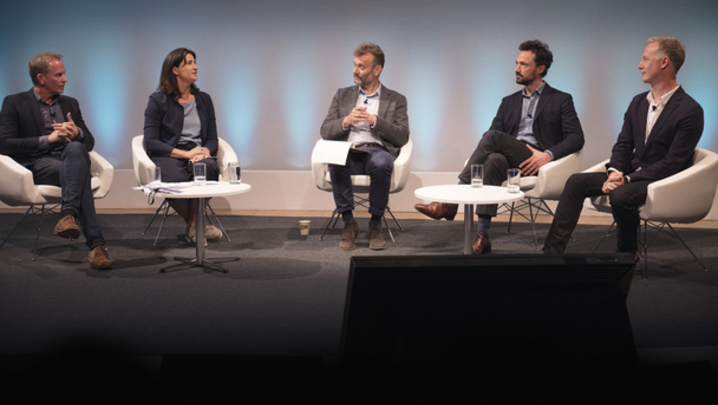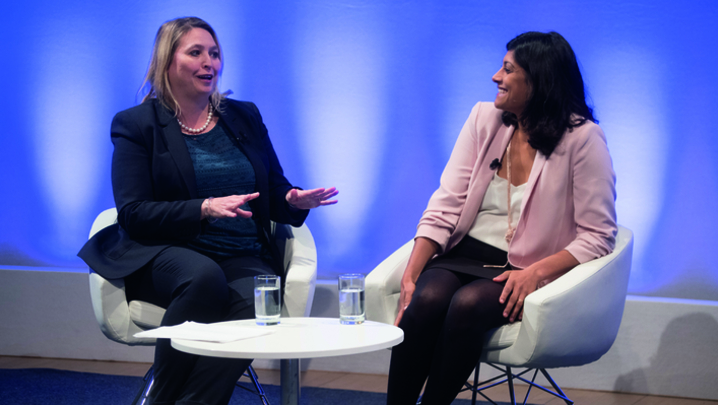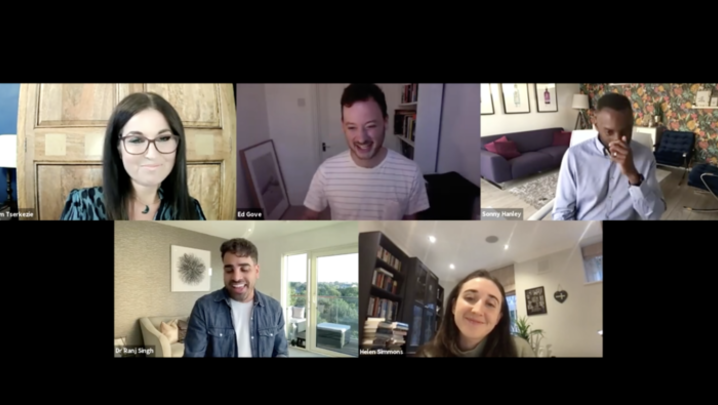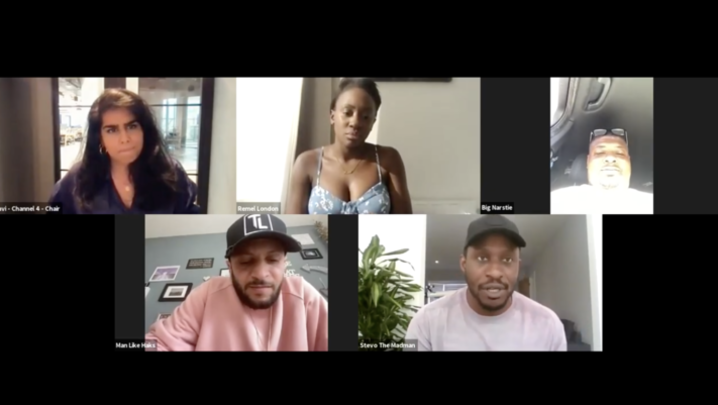A panel of TV heavyweights outlines how to build the stars of tomorrow in a hyper-competitive world. Matthew Bell reports
Television has to unearth and nurture new talent to thrive, but some in the industry fear that the flow of new comics and entertainers is drying up. If true, the consequences for British TV could be dire.
“There’s less money spent on developing new talent [in UK broadcasting] than I can ever remember,” argued Avalon chief Jon Thoday at a session devoted to the recruitment and retention of TV talent.
The founder of the entertainment and talent management company, which has top-drawer comedians such as Frank Skinner and Russell Howard on its books, added that this lack of investment was “potentially storing up a very bad problem for the future”.
“Years ago, I remember the first winners of the Perrier Award included Stephen Fry, Emma Thompson and Hugh Laurie, and they were given a TV series that year on the BBC. It just doesn’t happen any more; you have to wait maybe 10 years before there’s enough interest to get you on TV.
“In the late 1980s and 1990s, Channel 4 would send its entire entertainment division to Edinburgh for a whole month,” he added. “They go for maybe two days to the Edinburgh International TV Festival now, yet the Edinburgh Festival is 10 times the size and driven by the public.”
“Talent is everything,” said Sony Pictures Television creative chief Wayne Garvie. However, the former BBC (where he developed Strictly Come Dancing) and All3Media exec claimed that “the nursery slopes do not exist any more”.
Garvie pointed out that many of the country’s biggest entertainment stars came up through now-retired shows such as Channel 4’s The Big Breakfast.
“The industry has changed completely,” he continued. “There is a danger of us wallowing in nostalgia about talent. We’re not going to have [the late] Bruce Forsyth any more, because if Bruce the ‘Mighty Atom’ was around now, he would be on Britain’s Got Talent and his career would have a completely different trajectory.”
“Talent is key,” agreed Channel 4’s Ed Havard. “The best shows are always extensions of the talent involved.”
Routes into the big UK broadcasters were still navigable, he said, claiming that his channel had made “massive interventions in this space”. He highlighted Channel 4’s investment in disabled talent to front its Paralympics coverage, adding that this talent has since found other outlets on the broadcaster’s schedules.
The Last Leg originally ran alongside coverage of the 2012 London Paralympics, said Havard, as “a sweaty, late-night” show, but has “grown over three or four years to be an award-winning, huge entertainment show with new, diverse talent at the heart of it”.
Comedy Central’s Jill Offman offered a different industry perspective. “It’s no secret that established talent doesn’t necessarily come to a smaller broadcaster. We go out and seek the newest, the youngest, the hottest and the least exposed.”

Offman said there was a “disproportionate amount of attention on public service broadcasters because they are larger. But every time the PSBs fail to develop somebody new, that’s another opportunity for us.”
Comedy Central has been on air in the UK, under various names, for more than two decades. Latterly, it has looked to develop original content to supplement the US shows that fill much of its schedules.
“There has never been a better time to be talented – there are so many different windows for [talent],” said Offman. “There’s a scramble for anyone with a modicum of ability.”
She argued that, while “the discovery process isn’t broken”, developing talent was becoming more problematic. “There is only new talent and big hits and there isn’t very much in the middle.”
Session chair, A+E Networks’ Heather Jones, asked whether mainstream broadcasters could offer talent sufficient creative freedom. Or did they go elsewhere when they made it big?
Havard maintained that much of the talent developed through Channel 4’s short-form Comedy Blaps had stayed with the broadcaster because of the free rein it gives.
“We have to look really hard at positives to bring to the table,” added Offman. “What we can do, because we’re not a PSB and because we’re not subject to the same kind of scrutiny, [is] look for a very strong point of view or political show. That’s an opportunity for us.”
Comedy Central, she argued, could also give freedom to established performers such as Russell Howard: “We put him [on Stand Up Central] in the Electric [Ballroom, Camden] with 200 people. He gets to choose who’s on the show [from] up-and-coming comedians he likes, and he gets to make the filthiest jokes and make fun of whoever he wants. However, we wouldn’t have him if the BBC hadn’t developed him first. So, I think this mixed economy is really fruitful for the talent.”
The UK’s terrestrial broadcasters lacked the space in the prime-time schedules to showcase the country’s big-name performers, argued Thoday.
[Talent] needs… a stronger development system, somewhere between discovery and huge success
“If you take mainstream broadcasting, and look at ITV and BBC One, primetime is soaps and there is almost no money to spend on developing prime-time shows in the UK, apart from Saturday nights,” he said.
“The soaps are in decline and everyone is in denial about it. It’s [said] that, maybe, people don’t want [to watch] mainstream broadcasting any more but, maybe, it’s the fact that very, very old programmes are getting half the airplay and no money is being spent on developing the next big show for primetime. When was the last big returning show, pre-9:00pm, on BBC One or ITV, other than on a Saturday night?”
The panel agreed that TV relied on a steady flow of new talent, but also that this talent needed to be nurtured. Offman argued that, above all else, television “needs to build a stronger development system, somewhere between discovery and huge success”.
Havard stressed the importance of building a good relationship between the talent and the broadcaster or platform, while Garvie said that his motto had always been: “Trust in the talent.”
“We need to rethink the role of the commissioner,” added the Sony exec. He claimed that many more people were now involved in the programme-making process. “Our business is all about failure – most of the shows we launch don’t work. There are a lot more [commissioners] that you have to go through and it hasn’t changed the success/failure ratio in any way at all – so, trust in the talent, they might just get it right.”
“The key thing is to remember that talent is a benefit not a problem,” concluded Thoday, who called on the industry to invest in “diverse, new and young talent. It is something that has made us great in the world and, if we pull back from that, the future will not be rosy.”
‘Session Thirteen: Talent – how to find it, nurture it, pay for it and keep it’ featured: Wayne Garvie, chief creative officer, international production, Sony Pictures Television; Ed Havard, head of entertainment, TV events and sport, Channel 4; Jill Offman, EVP, Comedy Central and Paramount Networks International, and MD, MTV UK; and Jon Thoday, joint founder and MD, Avalon. The session was chaired by Heather Jones, general manager UK/senior VP of content and creative, A+E Networks, and produced by Helen Scott.
Whatever happened to satire?
The panel lamented the lack of satire on British TV, repeating a point made by Alastair Campbell in his after-dinner speech the night before. Where were the US-style talk shows such as Last Week Tonight, hosted by Brit John Oliver on HBO, or classic Brit programmes such as the much-missed Spitting Image?

Jon Thoday pinpointed two reasons for their absence on UK screens: ‘We don’t tend to want to build a show around a host. If you take [BBC Two’s] The Mash Report, Nish Kumar is cast into it. He’s talented, the guys around Nish are talented, but they didn’t build the show around Nish Kumar.’
‘The other thing is British broadcasters cannot allow a political show to have a political bias,’ he continued. In the US, he said, Oliver and his co-hosts, such as Stephen Colbert, can take their own political positions.
‘People are so bothered about being fair – satire should be dangerous. It’s very hard to be dangerous in British broadcasting.
‘People say they want it but, when it comes to it, the BBC’s too scared to do something satirical. It couldn’t do That Was the Week That Was now. They think they could, but they can’t.’
‘It’s incredibly difficult for the BBC – I worked there for a long time – to find talent who are allowed to have a strong tone of voice, particularly in satire and politics, because the scrutiny on the [BBC] is extraordinary,’ claimed Ed Havard. ‘Satire and topical programming is an area where we all need to work out how we can do it.’
Jill Offman argued that channels needed to ‘create a head of steam’ and show would-be satirists that they could build a career in telly.
‘We’ve seen it in the US with [The Daily Show host] Trevor Noah and the five or six late-night shows [broadcast]. Now, everyone thinks they can be a late-night host because so many people are. We just need to get three or four out the door.’
Thoday, however, pointed out that the UK and US industries were very different beasts: ‘The thing about the satire shows in the US is that they’re sort of alternative news. Young people watch The Daily Show partly for news.’ The Daily Show is on air four nights a week on Comedy Central in the US; British satire shows tend to air weekly, and for a limited run.
‘It goes back to the number of episodes you make. If you do six or eight episodes of a satire show, you’re never going to get a head of steam,’ said Thoday. ‘[Take] Spitting Image – I don’t think that ever would have stopped being commissioned in the US. Saturday Night Live started in 1975, it went through bad periods and now it’s a massive hit again. The truth is that we had the vehicles but we got rid of them.’
YouTube vs TV for new talent
‘When I started out, it was really sexy to be on TV. I was a working-class boy from Ipswich and I couldn’t believe how glamorous telly was,’ said Sony’s Wayne Garvie. ‘Now you can go on YouTube and make your own stuff and you don’t really want to be on TV.’
‘I don’t agree that talent doesn’t want to be on TV,’ argued Jon Thoday. ‘I regularly meet YouTubers who come to us for management, and they do want to be on television. They want to make high-end product.’
But, he added: ‘They need to learn how to do that. It is a long way from making a YouTube video in your bedroom about a subject that you’re interested in, to doing [TV] drama or a scripted comedy.’

